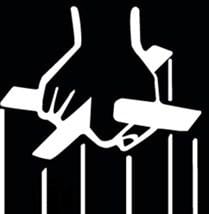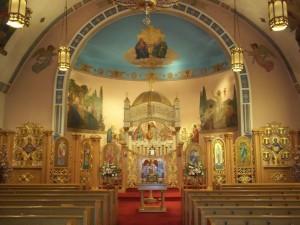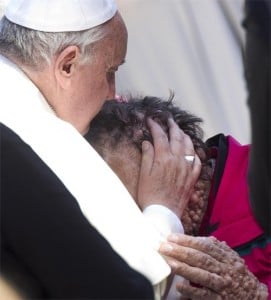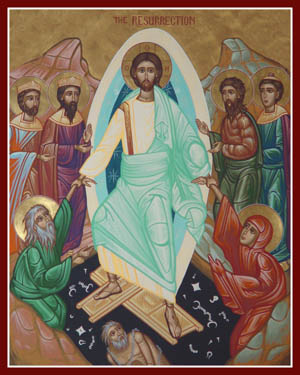
Why did I choose to become Orthodox? This is a question with a potentially long answer so I’ll highlight why. It came down to one question:
Why did Jesus die?
I was baptized Catholic and then went through a few stages of Protestantism as my mom sought a different expression of her faith. If memory serves me correctly, she had become alienated from the Catholic focus on original sin and persistent guilt. The idea of “if you don’t follow these rules then you will go to hell” was no longer something to settle for. Catholic guilt was the real deal in my family! As my family was going through some rough times the way God looked was alienating.
When my mom married my step-father we joined him in the Presbyterian Church (USA). As she puts it, that church was the first time she heard the Gospel preached and she met God there. It was a powerful experience for her and she has remained Presbyterian ever since. I was just in junior high school so I pretty much just fell asleep as usual.
In between naps, it was there that I hooked into evangelical Protestantism. I found an identity there. As with my mother evangelicalism eventually fit. It was my first real faith journey and it lasted from the end of junior high school through seminary. I was a very comfortable Calvinist through my middle year at seminary. So what changed?
Doctrinally it came down to one idea: I could no longer accept the notion that God needed to satisfy His own law and its consequences by killing off His Son. The idea that Jesus died to fulfill a legal contract God made with a humanity that didn’t keep up its end of the bargain seemed absurd. It was as if the presence of Jesus himself was relegated to a background status because none of that in itself was meaningful in closing the deal on sin. God the judge. God the gangster. God made an offer that we couldn’t refuse. Since we refused it we deserved death. But since we can’t possibly satisfy a king and judge like God, God had to suck it up and do it for us. It is as if God is shackled to His own Law. Love is in the service of justice and Jesus serves justice on the cross. Jesus came to die. My exposure to the church Fathers beginning with St. Athanasius’ On the Incarnation turned my understanding of God upside down.

My first experience in an Orthodox church was at St. John’s Carpatho-Russian Orthodox Church in Sharon, PA. It was for a Religion in America class where we were to visit a faith not our own. I knew just how different Eastern Orthodoxy was so a group of us went. It was confusing and off-setting. I was uncomfortable. Then a weird thing happened. After the Liturgy a woman behind me said, “Is your last name Tatusko?” I told her it was. It turns out that we were related. The name Tatusko is not that common. There was a strange connection made right there that would never leave me.
In Orthodoxy Jesus didn’t come here to save us from God’s wrath, He came in order to heal what was broken. The most broken aspect of human life is death itself. That’s the Gospel I heard in the narratives. This was the same God who raised Lazarus, who welcomed prostitutes and tax collectors, gave sight to the blind, and told a man to pick up his mat and walk. God is a God who heals wounds in spite of the fact that we cut ourselves open every day. God healed death by dying and raising from death. He did this not to satisfy an immutable Law, but because the very nature of God is Love. Grace steps in where justice fails. Because God is Love and that is what God revealed to us. As the Paschal Troparion is sung:
Christ is risen from the dead
Trampling down death by death
And upon those in the tombs
Bestowing life.
Before we were born the work of Christ to destroy death and the imparting of the Holy Spirit was accomplished. It continues to be present. This is not just a semantic issue. It cuts to the core of our very understanding of God. This works itself out in the practice of Orthodox faith through the saints of the early church to today. Those related ideas and practices are to discuss another time.
That was the main difference. That is why I sit in front of the Iconostasis every Sunday in the presence of my Lord.
For more see Scot McKnight’s post on the Atonement here.











